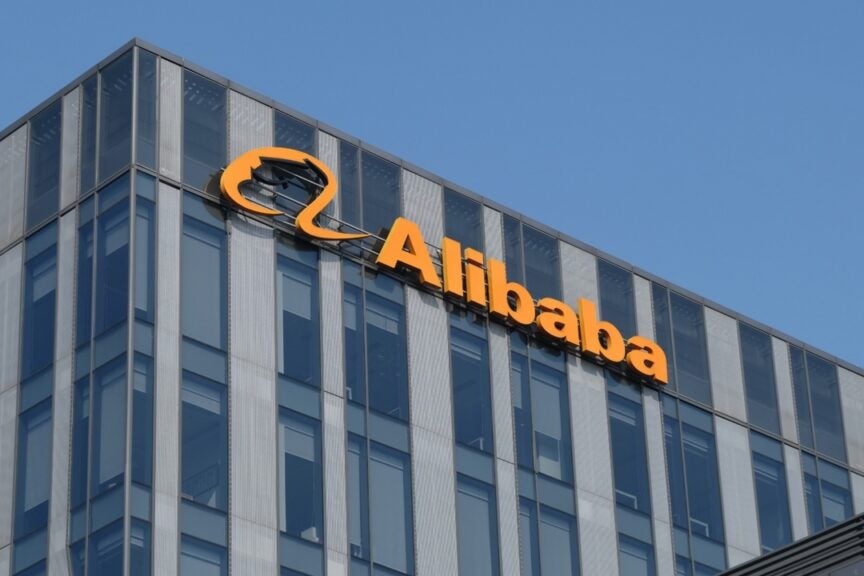Alibaba’s Strategic Shift: The $1.58 Billion Sale of Sun Art Retail Stake
In a significant move reflecting its evolving business strategy, Alibaba has divested a $1.58 billion stake in Sun Art Retail, one of China’s largest hypermarket operators. This strategic shift marks a pivotal moment for the tech giant, indicating a renewed focus on its core e-commerce operations amidst a rapidly changing retail landscape. As Alibaba navigates through heightened competition and a shifting consumer landscape, this decision raises important questions about its future trajectory and overall strategy.
Understanding the Implications of Alibaba’s Sale
The decision to sell this substantial stake in Sun Art Retail signals more than just a financial transaction; it represents a broader strategic realignment. For Alibaba, known primarily as an e-commerce titan, the move underscores a commitment to streamline operations and concentrate on its primary business areas. This sale also highlights the increasing challenges within the retail sector, particularly as the rise of online shopping continues to reshape consumer behavior.
Analyzing the Strategic Rationale Behind the Sale
Alibaba’s decision to divest from Sun Art Retail can be attributed to several factors:
- Focus on E-commerce: Alibaba has long been synonymous with online retail. By divesting from physical retail operations like Sun Art, the company can allocate resources and attention toward enhancing its digital marketplaces.
- Financial Flexibility: The sale provides Alibaba with a significant influx of cash, which can be redirected into innovation, technology upgrades, and expansion into new markets.
- Adapting to Market Changes: The retail landscape in China has been rapidly evolving, with a clear shift towards online shopping. Alibaba’s move reflects an understanding of these dynamics and a willingness to adapt accordingly.
The Competitive Landscape of Retail in China
China’s retail environment is fiercely competitive, with major players like JD.com, Pinduoduo, and traditional retailers vying for consumer attention. The rapid growth of e-commerce has compelled companies to rethink their strategies. Here are some key trends shaping the sector:
1. The Rise of E-commerce
The pandemic accelerated the shift towards online shopping in China, leading to a surge in e-commerce sales. As a result, companies are investing heavily in their digital platforms to capture this growing market.
2. Consumer Preferences
Modern consumers are increasingly favoring convenience and speed, which online retailers can provide more effectively than traditional brick-and-mortar stores. As a result, businesses are adapting their strategies to meet these evolving preferences.
3. Integration of Technology
Innovative technologies like artificial intelligence, big data, and cloud computing are transforming the retail landscape. Companies that leverage these technologies effectively can gain a competitive edge.
What This Means for Alibaba’s Future
Alibaba’s divestment from Sun Art Retail is not merely about shedding assets; it’s about recalibrating its focus in an ever-changing market. With the sale, Alibaba can concentrate on enhancing its core e-commerce platforms, which have been its hallmark since inception. This strategic focus is expected to yield several benefits:
- Enhanced Innovation: Freed from the complexities of managing a hypermarket chain, Alibaba can invest more in research and development, paving the way for new technological advancements.
- Strengthened Market Position: By concentrating on e-commerce, Alibaba can solidify its leadership position in the digital marketplace, potentially outpacing competitors who may not pivot as effectively.
- Increased Profitability: Streamlining operations and focusing on high-margin e-commerce activities can lead to improved profit margins, a critical factor for investors and stakeholders.
Potential Risks and Challenges
While the decision to sell the Sun Art stake appears to be a strategic win, it is not without potential challenges. Alibaba faces several risks as it focuses on its core business:
1. Competition
With other players in the market also pivoting towards e-commerce, Alibaba must continually innovate to maintain its competitive advantage. The landscape is crowded, and consumer loyalty can be fickle.
2. Regulatory Scrutiny
The Chinese government has increased scrutiny on major tech firms, leading to regulatory challenges. Alibaba must navigate this complex regulatory environment while pushing forward its business objectives.
3. Market Volatility
The retail market is subject to fluctuations based on economic conditions, consumer sentiment, and global events. Alibaba will need to be agile and responsive to these changes to sustain its growth trajectory.
Conclusion: A New Chapter for Alibaba
Alibaba’s strategic shift through the $1.58 billion sale of its stake in Sun Art Retail marks a defining moment for the company. As it pivots back toward its e-commerce roots, Alibaba is not just adapting to the current retail landscape; it is positioning itself for future success in a digital-first world. While challenges lie ahead, the commitment to innovation and core business focus offers a promising outlook for Alibaba as it navigates the complexities of the modern retail environment.
As the company continues to evolve, stakeholders and consumers alike will be watching closely to see how Alibaba harnesses this newfound focus to shape its future in the competitive e-commerce arena.
See more Business Focus Insider Team

